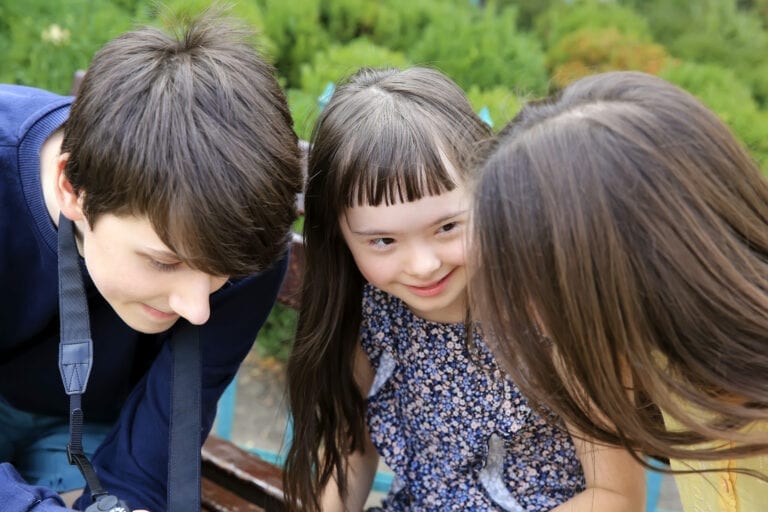Building trust between seniors and their caregivers is not just an important step—it’s the very foundation of quality care. For many seniors, entrusting someone new with their personal needs, health concerns, and daily routines can feel overwhelming. This is why developing genuine trust is essential, not only for the senior’s comfort but also for their emotional, mental, and physical wellbeing.
At From The Heart Home Care, we believe that trust is earned through compassion, consistency, and true respect for the individuals we care for. In this article, we’ll explore why trust matters, common challenges, proven strategies for building it, and how families and professional caregivers can work together to create meaningful, lasting bonds.
Why Trust is the Heart of Senior Care
Trust in caregiving relationships goes beyond feeling safe—it fosters dignity, confidence, and peace of mind. When seniors trust their caregivers:
- They feel valued and respected. Trust allows seniors to feel that their voices and choices matter, even as they accept help with daily living tasks.
- They experience better health outcomes. Seniors are more likely to adhere to medications, therapies, and health routines when they trust those supporting them.
- They enjoy emotional stability. A strong bond with a caregiver reduces feelings of isolation, depression, and anxiety.
- They maintain a greater sense of control. Even while receiving help, trust enables seniors to feel in charge of their lives and decisions.
At From The Heart Home Care, we know that trust is not just a bonus—it’s essential to delivering personalised care that truly enriches our clients’ lives.
Common Challenges to Building Trust
While trust is crucial, it isn’t always easy to establish—especially in the beginning stages of a caregiving relationship. Some common barriers include:
1. Past Negative Experiences
Seniors who have had poor experiences with healthcare providers, caregivers, or institutions may understandably carry skepticism or fear into new relationships. Gaining their trust may require extra patience and sensitivity.
2. Fear of Losing Independence
Needing help can sometimes feel like a loss of autonomy. Seniors may resist assistance as a way of maintaining control over their lives, even when they know help is needed.
3. Physical or Cognitive Changes
Health conditions like dementia, Alzheimer’s disease, or hearing loss can create confusion or misunderstandings, making it harder for seniors to feel secure and build rapport.
4. Communication Barriers
Differences in language, culture, or communication styles can unintentionally create distance. Misunderstandings, even small ones, can slow down the trust-building process.
Recognising and addressing these challenges early on is key to creating a supportive, trusting relationship. That’s why, at From The Heart Home Care, we take great care to tailor our approach to each individual’s needs, preferences, and background.
How to Build Trust Between Seniors and Caregivers
Building trust is a process that involves time, intention, and daily actions. Here are some of the key strategies we embrace to foster strong bonds between our caregivers and the seniors they support:
1. Open and Respectful Communication
Communication is at the core of any relationship, especially in caregiving. Caregivers should:
- Speak clearly and kindly
- Listen attentively without interrupting
- Ask for and value seniors’ opinions
- Share information openly and honestly
When seniors feel heard and understood, they are more likely to open up, express their needs, and build confidence in their caregivers.
2. Consistency and Dependability
Nothing builds trust faster than reliability. Consistency in daily routines, punctuality, and follow-through on promises helps seniors feel secure.
At From The Heart Home Care, we ensure that seniors have consistent caregivers whenever possible, so relationships can deepen over time rather than starting over with each visit.
3. Respect for Privacy and Personal Boundaries
Caregivers must be sensitive to the personal boundaries and dignity of each senior. Respecting private moments, asking permission before assisting with personal tasks, and treating every interaction with discretion and care helps foster respect.
This respect shows seniors that even though they may need assistance, they are still in control of their lives.
4. Encouraging Independence
Supporting independence is crucial for building self-esteem and trust. Rather than doing everything for the senior, caregivers should empower them to do as much as they can safely manage.
This approach not only maintains physical and cognitive skills but also shows the senior that the caregiver sees and supports their abilities.
5. Showing Genuine Empathy and Compassion
Empathy—the ability to genuinely understand and share the feelings of another—is a powerful connector. Caregivers who take the time to acknowledge the emotional aspects of aging, loss, and change help create a safe emotional space.
Simple acts like remembering important dates, noticing small changes in mood, or taking time to chat about meaningful topics can make a world of difference.
Learn More: The Power of Movement: Why Regular Exercise Matters for Seniors
The Family’s Role in Building Trust
Families play a critical role in supporting trust-building between seniors and caregivers. Their involvement can make the transition smoother and create a stronger sense of teamwork.
Ways families can help include:
- Open Communication: Regular updates and check-ins with both the caregiver and the senior create transparency and foster mutual understanding.
- Setting Clear Expectations: Defining roles, responsibilities, and care plans early on helps prevent misunderstandings.
- Encouraging Patience: Families can help seniors adjust by encouraging them to give the new relationship time to grow.
- Celebrating Milestones: Acknowledging moments when trust is earned—like a successful outing or a positive caregiving experience—can reinforce confidence.
At From The Heart Home Care, we prioritise family communication and collaboration because we believe that care works best when it’s a true partnership.
Building Trust Over Time: What to Expect
It’s important to remember that trust is a gradual process. In the early days, a senior may be cautious or reserved—and that’s perfectly normal.
Building trust may involve:
- Creating a safe, predictable routine
- Being sensitive to the senior’s emotions and reactions
- Adjusting care strategies as the relationship evolves
- Acknowledging and apologising for mistakes quickly and sincerely
Patience is key. With consistency, compassion, and respect, most caregiving relationships blossom into warm, trusting partnerships.
How From The Heart Home Care Builds Trust Every Day
At From The Heart Home Care, trust is at the core of everything we do. Our approach to building lasting, meaningful relationships with our clients includes:
Personalised Caregiver Matching
We carefully select caregivers based on skills, experience, and personality to ensure the best possible match with each client.
Ongoing Caregiver Training
Our team members receive continuous training in communication, dementia care, cultural sensitivity, and emotional intelligence to ensure they are equipped to build trust effectively.
Transparent Communication
We keep seniors and families informed and involved in the care planning process at every stage, promoting transparency and collaboration.
Compassionate Care Philosophy
Above all, we lead with heart. Our caregivers are chosen not just for their skills, but for their genuine compassion, patience, and love for what they do.
Regular Check-ins and Feedback
We believe in continuous improvement. That’s why we encourage regular feedback from both seniors and their families to ensure that trust, comfort, and satisfaction remain high.
Learn More: Compassionate 24-Hour Senior Care at Home in Greenville
Conclusion
Building trust between seniors and their caregivers is not an overnight process—it’s a journey built on mutual respect, kindness, patience, and communication. A strong, trusting relationship can turn caregiving from a duty into a partnership that enriches the lives of both the senior and the caregiver.
At From The Heart Home Care, we are committed to walking that journey hand-in-hand with our clients. With every visit, every conversation, and every smile, we strive to create a caregiving experience built firmly on trust and delivered straight from the heart.
Trust us to care for your loved ones the way family should—because at From The Heart Home Care, care truly comes from the heart.







